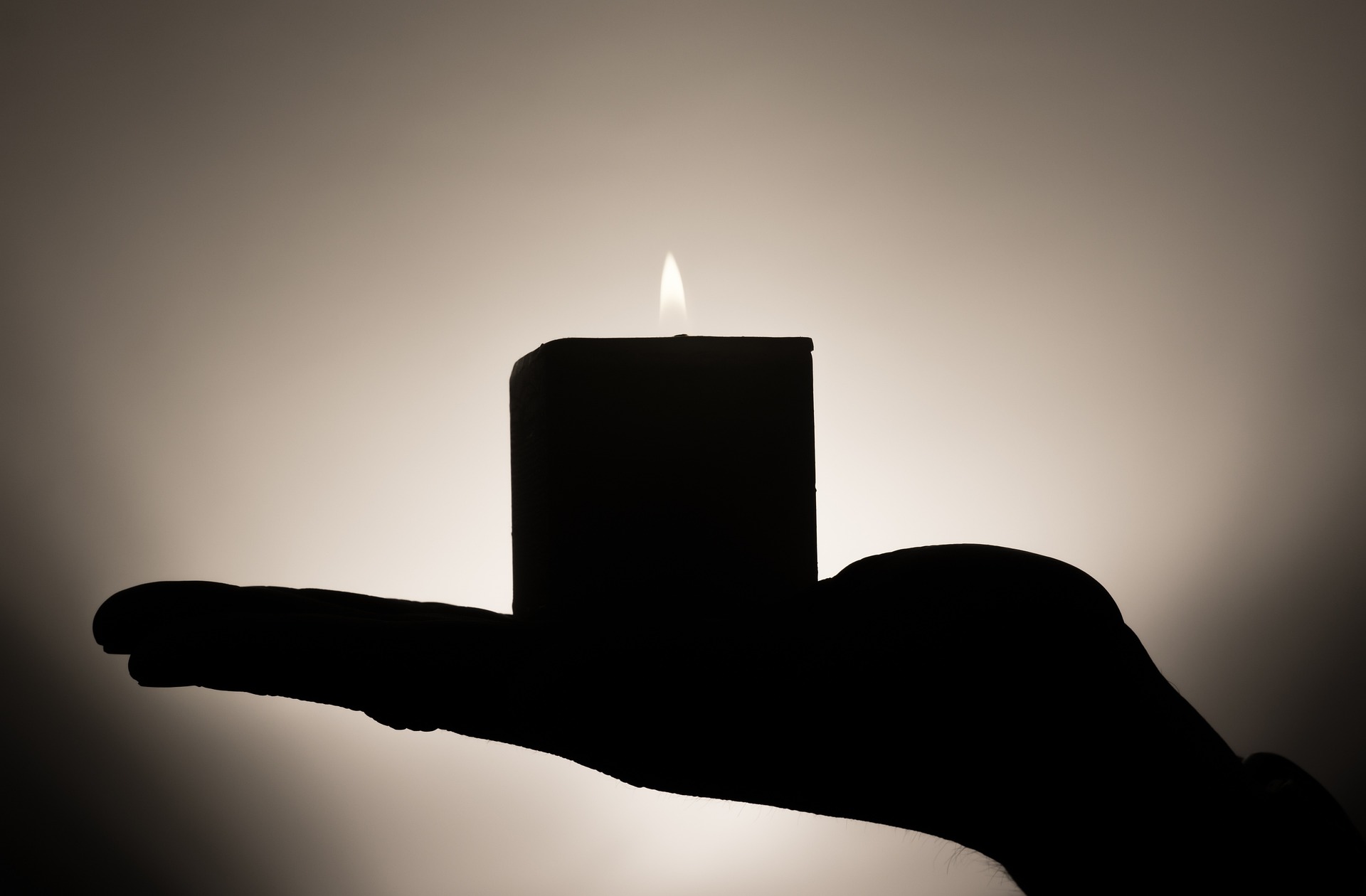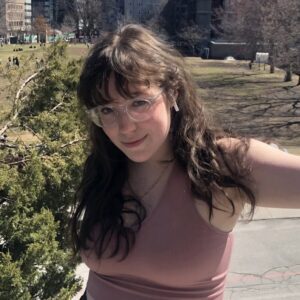Bubbie’s kitten heels click on the wet pavement as we make our way toward the doors. I scramble to keep up, my seven year old legs restrained in my Old Navy white slacks. She rustles through her purse for the tickets that prove we belong here. Opening her gnarled hands, she presents them to the police officers, their uniforms a stark contrast against the soft white entrance. Inside, the lively stream of congregants trickles down to a quiet hum as we enter the sanctuary. Zadie’s brow crinkles and knees bend as he wraps his tallit around him. We silently enter the shul and sit down to pray.
That night, my grandparents’ house is aglow with conversation as two dozen relatives pile into the dining room and crowd around the folding tables to celebrate Rosh Hashanah. We pass around plates, and with them, stories of what has happened this past year.
After dinner, we race around the house, our bellies aching from laughter and all the fruit jellies that we’ve stolen off the raggedy back hutch. We fall asleep in the basement watching Mamma Mia! on blow-up beds, hearts as full as stomachs. Here, with my family, is the only time I truly feel Jewish.
My earliest memory is with my grandparents. I’m four years old. Bubbie has finally allowed me to paint her nails. She takes out the nail polish remover and wipes away her immaculate manicure. While I paint Bubbie’s nails bright pink, Zadie quizzes me on multiplication. I know that he only wants the best for me: an excellent education and a good job, things stolen from him as he grew up in a refugee camp. I dutifully answer his questions. I do my best to make my grandparents proud. I put my head down and study hard. In the summers, my cousins and I visit Bubbie and Zadie. We live the American dream: we pick strawberries, play mini-golf, visit Lake George.
I’m fifteen years old, visiting my grandparents for the weekend. Bubbie is too tired to cook, so we go out to eat. We are alone in the restaurant. Far from the usual clamor of family, the silence has never been so loud. Zadie’s fork clatters on the table, startling me.
So, he says, taking a breath to steady himself, I have been told that you are gay.
I see his lips moving, but I can’t take in the words.
I turn my eyes to Bubbie. I just do not understand, she says.
I don’t either, I want to say.
Instead, I settle for the only words my mouth can remember. I’m sorry.
A few weeks later, in the last Jewish teen group event for the year, my friends and I sit huddled in a dark room divulging our dreams, our woes, and everything in between. When I first met these people, we were strangers from high school – our only connection was our Judaism. Through our conversations, I have come to realize we have so much more in common. We are all struggling to become someone new, someone older. Here, I feel heard, and I am loved, with all of who I am. The candle is passed to me, the warm glass heating my fingers. It takes me a while to figure out what to say, but among this chosen family I’ve found, the silence feels comfortable.
As Jews, I often thought the thing that brings us together is persecution. We anticipate being uprooted and we expect the worst in everyone, even ourselves. I have been living in fear for too long, I tell my friends. I stare at the candle until I’m blinded, then pass it to the next person, my story rising, curling towards the ceiling with the sweet blueberry-scented smoke.
But I was wrong. It’s not just persecution that brings us together. Despite the obstacles, we move forward, and with time, I see our problems that once felt unsolvable begin to subside. I realize: the thing that binds us together is the fact that we have persisted.
Summertime arrives, and my family prepares Shabbos dinner together. I stay outdoors, far from the murmurs of adult conversation on the porch. But I can’t hide forever: at dinnertime I am dragged to the table.
Bubbie passes me the kugel.
She wraps her fingers around mine and tells me that she may not ever understand, but she loves me anyway. I will always be her mishpacha, her family.
I realize we are both growing, together. How can I expect her to understand my sexuality if I don’t understand it myself? In time, maybe I will learn how to explain my love.
For now, her love is enough. She says she is trying, and she is still learning.
Me too.
This time, I don’t stop myself from speaking.

